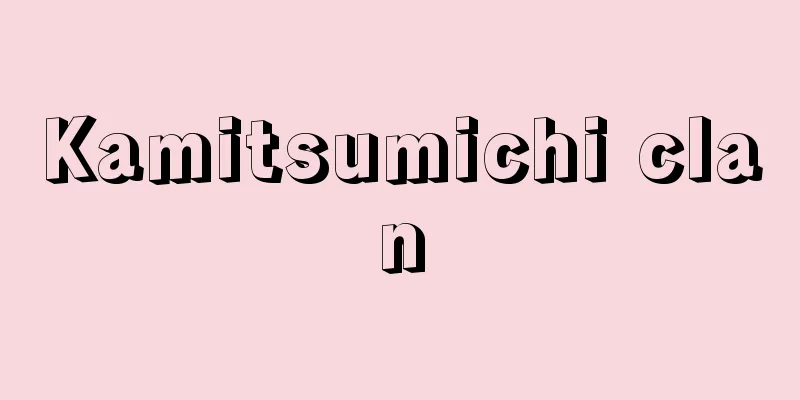Cutting - Cutting

|
A technique in which a large piece of cloth is cut into a pattern and sewn onto it. It is often seen on jinbaori (camp coats) and hijiki haori (fire jackets) from the Momoyama to Edo periods. In the process of creating Buddhist statues, instead of carving out spiral hair or lotus petals, lines are sometimes carved into the design, which is also called kiri-tsuke. (→ Applique) Source: Encyclopaedia Britannica Concise Encyclopedia About Encyclopaedia Britannica Concise Encyclopedia Information |
|
母体とする大きな布の上に,文様に切った他の布を縫いつける技法。桃山から江戸時代にかけての陣羽織や火事羽織に多くみられる。また,仏像制作の過程で,螺髪 (らほつ) や蓮弁などを彫り出す代りに,線を刻んで表現することがあり,これも切付けと呼ぶ。 (→アプリケ )
出典 ブリタニカ国際大百科事典 小項目事典ブリタニカ国際大百科事典 小項目事典について 情報 |
<<: Kiritsukemono - Cut-out crest
Recommend
Yasuchika Abe
Year of death: 1183 Year of birth: Tenei 1 (1110) ...
Urology - Urology
It is a branch of clinical medicine and is a rela...
Sonchi - Sonchi
Years of birth: Dates of birth and death unknown. ...
plane polarized light
… [Type of polarization] Polarized light can be d...
Whitcomb, R.
…This law clarifies the relationship between the ...
Warty pearl oyster - Warty pearl oyster
... There are about 50 species of Littorinidae in...
Kappo - Kappo
...It is used by young girls in formal attire and...
Union Mondiale Democrat-Chrétienne (English) Union Mondiale Democrat-Chrétienne
In 1956, 19 Christian democratic parties in Weste...
Rihei Shimizu
Years of birth: unknown. A tayu of kojoruri from t...
Article - Kanshi
A type of short word that combines with a noun or...
Kashihara [city] - Kashihara
A city in the southern part of the Nara Basin in N...
Southern Buddhism
Theravada Buddhism was introduced from India to Ce...
Kazakh people - Kazakh (English spelling)
A Turkic ethnic group whose main habitat is the Re...
Baby Education
An American film produced in 1938. Original title:...
Wind-cutting sickle
…In addition, old sickles are placed at the entra...









